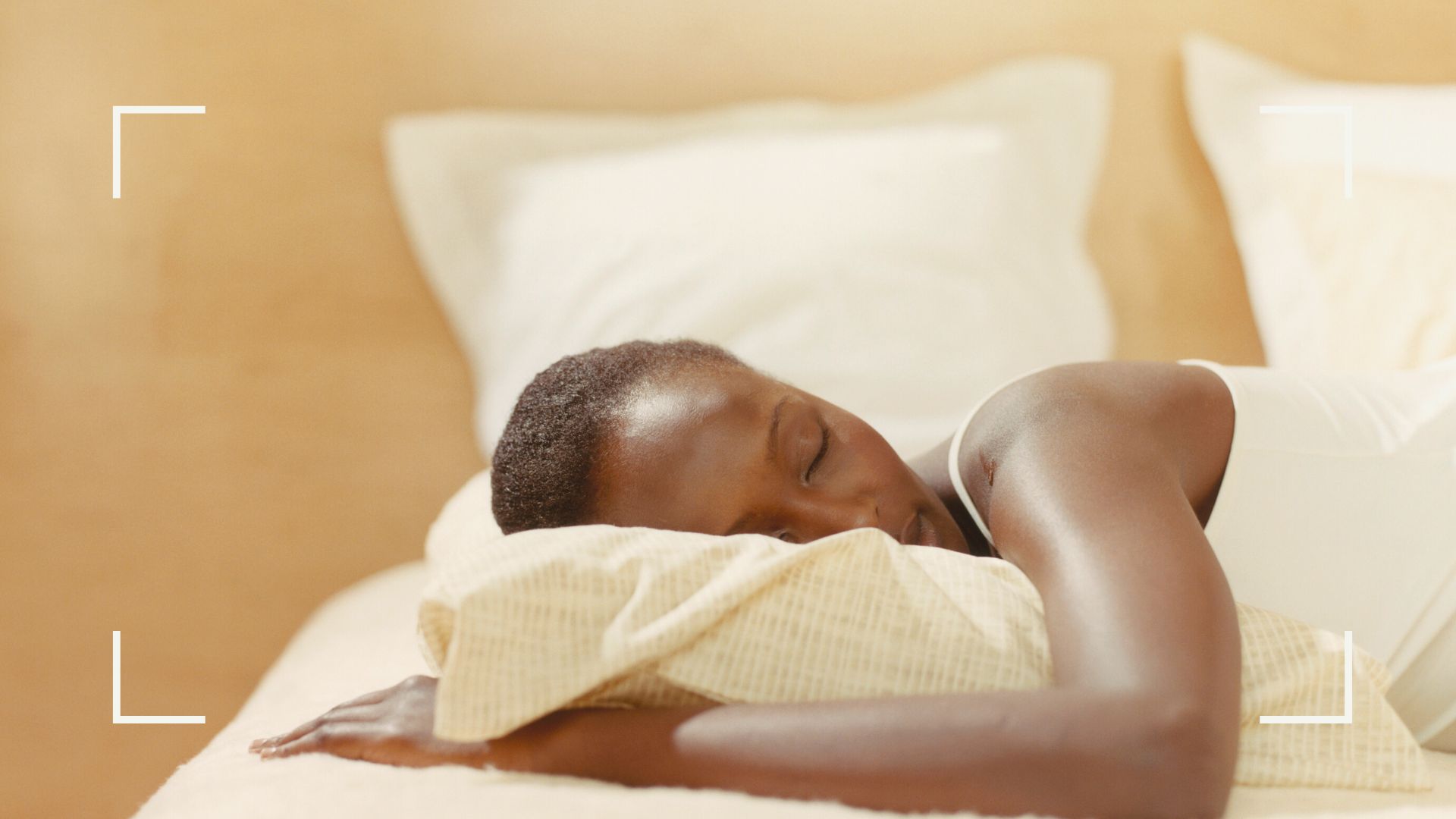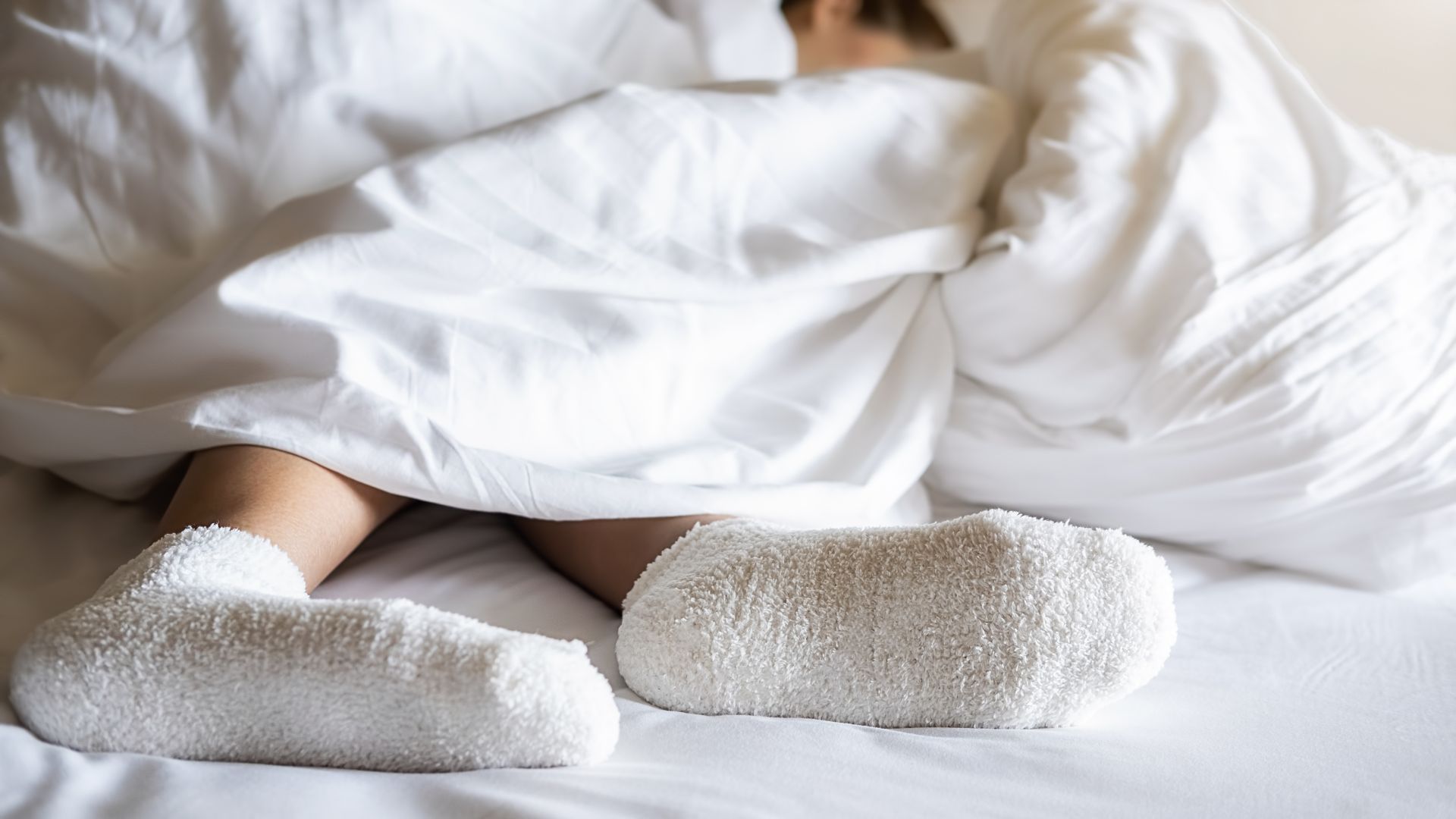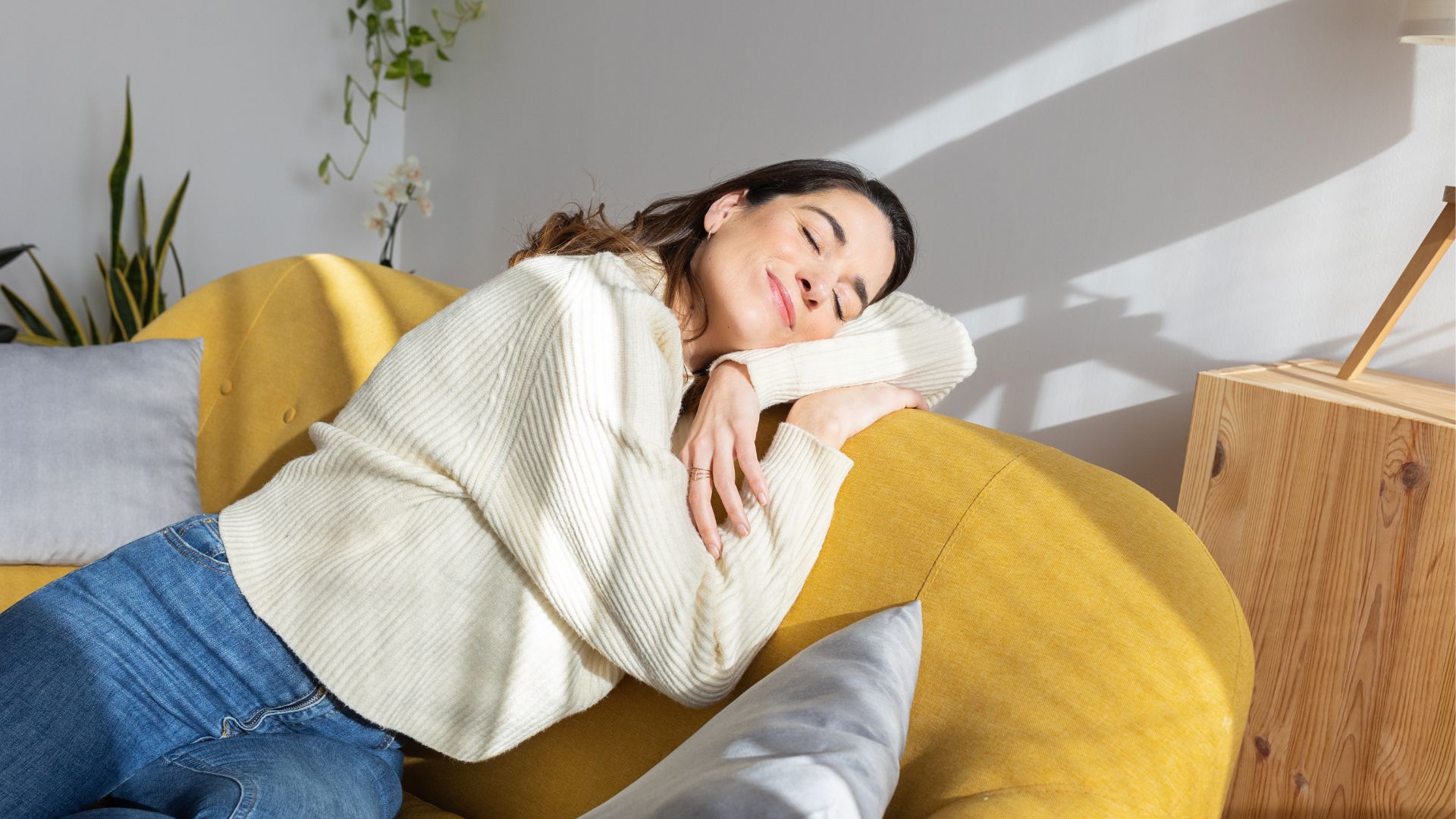Is six hours of sleep enough? Experts debunk the myth
Sleep experts explain if six hours is enough sleep to help you get the best rest possible


We all know that we should *ideally* get seven to nine hours of sleep a night, but is six hours of sleep enough?
From your diet and your exercise routine to your genetics and your hormones, the truth is there are lots of factors that influence how much sleep you actually need. To help you determine if six hours of sleep is enough for you, and the impact it could have on your health, we asked the experts.
While poor sleep is a universal struggle, sometimes sleeping for six hours or less isn't down to choice. The land of nod doesn't always come easy, and if you're finding it difficult to fall asleep or stay asleep during the night, our experts have also shared the techniques that could transform your sleep routine - from sleep guided meditations to removing tech from the bedroom and cutting down on caffeine.
Is six hours of sleep enough?
How much sleep you need will depend on a number of factors, from your lifestyle to your genetics. In fact, researchers at the University of California, San Francisco published a research paper in 2019 that showed some people have a gene mutation that allows them to function well on four to five and a half hours sleep.
However, this mutation is very rare ,and in general the majority of us will need more shut-eye than this. Psychologist Dr Sue Peacock explains: "According to the research, six hours of sleep may not be enough for everyone as the ideal amount of sleep varies from person to person.
"For most adults, the recommended amount of sleep is between seven and nine hours per night to enable them to cycle through all the stages of sleep required for good health."
Your sleep pattern will also change as you age, and there's no magic number of sleep hours that works for everyone of the same age too, Dr Peacock points out.
Sign up to our free daily email for the latest royal and entertainment news, interesting opinion, expert advice on styling and beauty trends, and no-nonsense guides to the health and wellness questions you want answered.
The best way to tell if six hours of sleep is enough for you, is by how you feel. "If when you wake up you feeling refreshed, it’s probably the right amount of sleep for you," adds Maud Eeckman, a mindset coach and yoga practitioner who hosts sleep retreats.

What happens if you only sleep six hours a night?
For most people, less than six hours of sleep each night can have a negative impact on everything from their concentration and memory to their immune system, appetite and mood. This is because we sleep in cycles, and if we don't complete the sleep cycles we don't allow our body and mind the time it needs to repair during sleep. "If you sleep less than six hours, you lose an entire cycle of REM sleep which involves a lot of brain activity and is essential for memory consolidation and our ability to process emotions," explains Eeckman.
"Not sleeping enough is also linked to mood disorders such as anxiety and depression, it can weaken our immune system increasing the risk of infection, and make us more prone to weight gain due to the over overproduction of the hormone ghrelin which increases appetite," explains Dr Peacock.
If you wake up feeling tired and groggy, find yourself taking afternoon naps or with significantly less energy throughout the day, six hours of sleep might not be enough for you. And, if this is the case, it can cause sleep deprivation which will have a long-term impact on your health.
"With ongoing sleep deprivation, there is an increased risk of high blood pressure, strokes and heart disease," explains Dr Peacock. "Sleep deprivation will accelerate aging due to increased inflammation and oxidative stress, too."
According to Dr Peacock, symptoms of sleep deprivation include:
- Daytime sleepiness and fatigue
- Difficulty concentrating and making decisions
- Mood changes such as low mood or irritability
- Impaired memory
- Increased appetite and cravings for sugary or high fat foods
- Frequently catching colds or getting ill
- Impaired physical performance, co-ordination and reaction times
If you're experiencing symptoms of sleep deprivation, it could be time to experiment with the best sleep aids to encourage you to unwind at night, sleep better and sleep for longer. Investing in the best health apps to track your sleep, cbd for sleep (a natural alternative to sleeping pills) or trying a sleep tea, a warming caffeine-free drink could be just the ticket.
If you experience a prolonged period of sleep deprivation, speak with your doctor to determine the cause of your lack of sleep and treatment options.

Do naps count as sleep?
Prone to an afternoon power nap? If you struggle to get enough sleep each night or want to sleep better overall, it might be time to ditch the midday snooze.
"Naps are considered to be a form of rest rather than sleep," explains Dr Peacock. This is because when we nap for a short period of time, are body doesn't go through the essential cycles for rest and repair that it does during a full night's sleep.
"It’s important to avoid naps if you suffer from insomnia and/or poor-quality sleep at night as it will interfere with your sleep schedule," Dr Peacock adds.
If you sleep soundly each night after napping during the day, then there's no need to stop. Dr Peacock even tells us that short naps can improve cognitive performance. However, naps over 30 minutes are likely to make you feel groggy and interfere with your nighttime sleep. So, stick to a 20-minute snooze on the couch or try a relaxing yoga nidra practice which is said to be as beneficial as a nap.
Tips for getting more sleep
- Get daylight in the morning: Whether that's a cup of coffee in the garden or a walk around your local park, daylight early in the day will help to regulate your circadian rhythm aka your body's clock. "Our bodies follow a 24-hour cycle and are aware of the time of day," explains Dr Hana Patel, a doctor and sleep expert who also works with Time4Sleep. "They send signals to encourage drowsiness at night time and alertness in the day." You want to signal to your body when it's morning with daylight as early in the days as possible.
- Create a consistent bedtime routine: Like with many aspects of health and wellbeing, consistency is key. "Go to bed and wake up around the same time, no matter what day it is. This will help improve your quantity and quality of sleep overall," explains Eeckman.
- Take time to relax at night: Ditch tech in the evening and instead practice relaxation techniques, whether that's using one of the best meditation apps, manifesting before sleep or reading a book. Techniques like the 4-7-8 breathing exercise or the box breathing method kickstart the body's rest and digest response, prepare the mind to sleep, and help you fall asleep fast.
- Practice gratitude: A nice way to round off the day, research shows practicing gratitude boosts positive emotions and reduces stress, which can often inhibit sleep. "It's a really powerful and effective way to switch off from the stresses of the day and encourage better sleep," explains Suzy Glaskie, functional medicine health coach and Head of Wellness at Known Nutrition. "Simply keep a notebook next to your bed and write down three things that you’re grateful for from that day."
- Go to bed when you are tired: The best time to go to sleep and wake up will be individual to you, but Dr Peacock points out that we often go to bed when we think we should and end up lying awake, frustrated when sleep doesn't come. Instead try to go to bed when you are actually tired, when you start yawning or your eyes start closing, and you're more likely to nod off. "Sleep is a bit like surfing, it comes in waves, and we have to catch the wave," explains Dr Peacock.
- Create a sleep sanctuary: A cozy and comfortable bedroom can support your sleep, whether that's investing in one of the best pillows, or a weighted blanket. "If you don’t have black-out curtains, buy a sleep mask and see what a difference it makes. You could also use earplugs or a white noise machine to block out disruptive sounds," says Glaskie. Consider the temperature of your room too, if it's too hot or too cold it will be difficult to drift off. “The optimal room temperature for sleep for adults is between 60 to 67 degrees Fahrenheit (15.6 to 19.4 degrees Celsius)," adds Dr Patel.
Ciara McGinley is a meditation practitioner and health journalist. She qualified as a meditation teacher with the British School of Meditation in 2020 and is the founder of Finding Quiet, a series of classes, workshops and retreats that combine meditation practices and mindfulness techniques to make mindful living realistic in an always-switched-on modern world. She is all about bettering that mind-body connection but believes wellness looks different to everyone.
Ciara is also the former Health Channel Editor at woman&home and has covered all things health and wellbeing for years, from fitness to sleep to relationships.
